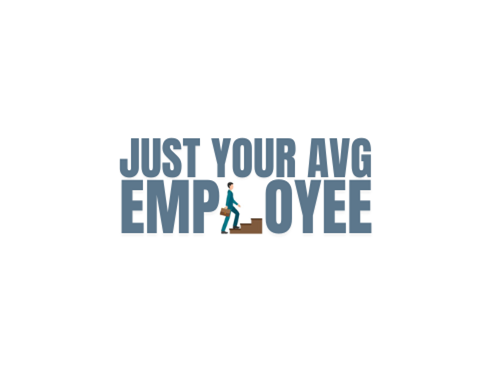Why FutureFIT?
Organizations are increasingly faced with the challenge of maintaining operational stability while simultaneously driving continuous innovation. The FutureFIT framework offers a balanced approach for organizations to adapt to changing conditions while sustaining a focus on long-term goals. Success in the future requires adaptability by design.
What is a FutureFIT Organization?
A FutureFIT organization is built around three core pillars: Foresight, Innovation, and Twist. These pillars are designed to ensure that organizations are resilient, innovative, and capable of shifting between exploration (disruptive opportunities) and exploitation (refining and optimizing existing operations).
Research Methodology
The FutureFIT Organization Index is grounded in a mixed-method approach, combining quantitative surveys with qualitative case studies. This methodology provides both breadth and depth in assessing an organization’s readiness to embrace the FutureFIT framework.
Case Studies for In-Depth Understanding
Case studies play a vital role in validating and refining the FutureFIT framework. They provide practical insights into emerging challenges and opportunities, allowing for continuous learning and adaptation of the research tools. These studies will focus on specific elements of the framework, ensuring that each pillar is tested against real-world conditions. Annually, new case studies will shed light on emerging trends, allowing the research to stay relevant and forward-thinking.
Annual Surveys and Longitudinal Insights
The annual surveys provide a robust quantitative foundation, allowing organizations to track their progress over time. These surveys will capture data from multiple stakeholders within the organization, offering a comprehensive view of how FutureFIT principles are being implemented across different levels. By engaging in yearly assessments, organizations can monitor their growth, benchmark themselves against peers, and adapt their strategies accordingly.
Active Participation
Organizations are not passive recipients in this process; they can become active participants in shaping the FutureFIT research. Participating companies are invited to engage directly with the research team, offering insights, proposing case studies, and refining the survey tools to ensure they remain relevant and applicable to emerging challenges. This collaboration allows organizations to co-create knowledge and directly influence the direction of the research.
A Glimpse into the Future! FutureFIT Awards and Recognition
To recognize excellence in foresight, innovation, and strategic adaptability, we will introduce FutureFIT Awards in a near future. These awards will celebrate organizations that exemplify FutureFIT principles and provide a platform for sharing best practices across industries. By recognizing outstanding achievements, the awards will serve as an incentive for organizations to continually improve and innovate.
Why Should Organizations Participate?
Participating in the FutureFIT Organization Index provides organizations with the opportunity to benchmark their performance, refine their strategies, and actively contribute to advancing knowledge in the field of organizational strategy. Our hypothesis is that purpose-driven organizations—those aligned with a broader societal impact—will be more resilient and successful in the long run.
Conclusion and Call to Action
The FutureFIT research equips organizations with the tools to navigate complexity, drive continuous innovation, and align their strategies with a greater purpose. By participating, organizations not only enhance their future-readiness but also help advance a new understanding of what it means to be FutureFIT. We invite organizations as active collaborators in shaping the future of organizational strategy. Together, we can build a community of organizations that are resilient, innovative, and purpose-driven, leading the way toward a better, future-ready world.
Quick Scans: A Fast Track to FutureFIT Insights
Quick Scans are a powerful entry point into the FutureFIT framework, offering organizations a quick and efficient way to evaluate critical concepts essential for staying future-ready. Whether you’re looking to assess remote work policies, team dynamics, innovation structures, or other organizational priorities, Quick Scans provide a focused lens into these areas, delivering personalized insights in record time.
Designed for simplicity and impact, Quick Scans are perfect for organizations that want to start small while making meaningful progress. Through a brief, targeted survey, participants gain access to automated, data-driven feedback and actionable recommendations tailored to their unique context.
Why Choose Quick Scans?
- Start anytime: Interested in a topic? You can start a Quick Scan anytime, no need to wait for our yearly call for FutureFIT participation
- Focused Insights: Gain clarity on one or two specific areas without the need for a major time or resource commitment.
- Personalized Feedback: Receive tailored insights that highlight strengths, pinpoint areas of improvement, and provide direction.
- Actionable Outcomes: Move forward with practical recommendations designed to address organizational challenges effectively.
- Scalable Start: Quick Scans serve as an ideal introduction to the FutureFIT framework, paving the way for deeper engagement and broader transformation.
How It Works
Participation is straightforward:
- Select a topic of focus from our range of Quick Scan areas.
- Complete a set of brief surveys designed to assess current practices and opportunities.
- Receive valuable feedback, along with targeted suggestions to take your organization to the next level.
A First Step Toward Transformation
Quick Scans are more than just a diagnostic tool—they’re a stepping stone to aligning your organization with the dynamic demands of the future. By starting small, you can explore the benefits of the FutureFIT framework while building a foundation for sustained growth and innovation.
Discover the power of focus, precision, and simplicity with Quick Scans. Take your first step toward a future-fit organization today.
Participate in a Quick Scan







